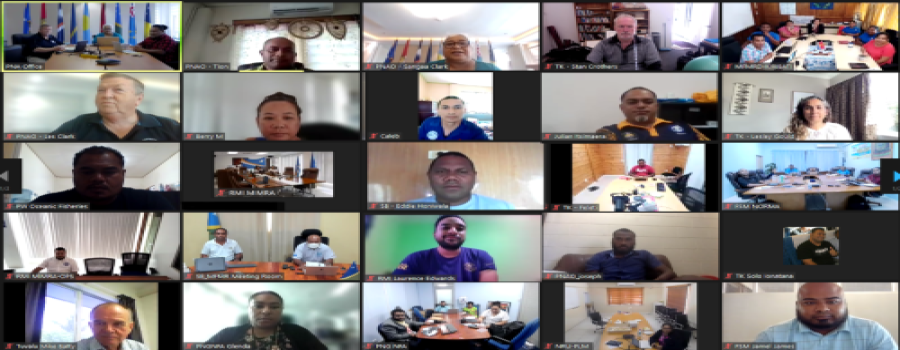PNA Members and Tokelau completed a 2-day virtual workshop, aimed at supporting the implementation, at national level, of the 4th Implementing Arrangement to the Nauru Agreement. Under the Arrangement, PNA Members and Tokelau have agreed to require electronic tracking buoys that are attached to drifting fish aggregating devices, or FADs, to be type approved, registered and tracked, effective 1 January 2023. The PNAO CEO, Dr Sangaalofa Clark, said that fishing on FADs is a very important component of the economy of the PNA purse seine fishery. However, high levels of FAD use are known to adversely impact some tuna and bycatch stocks, and may also adversely affect the marine environment.
PNA and Tokelau are already a world leader in managing FADs. This is why the level of FAD use in the Western and Central Pacific Ocean is only around half the level in most other tropical ocean regions, and the region has the healthiest tropical tuna stocks. The effective control of FADs is a key factor in the healthy status of the major tropical tuna stocks in the region. Under the Arrangement, FAD buoys will have to be registered to identify who is responsible for the buoys and the FADs they are associated with; and the buoys will have to transmit position data so they can be tracked as they drift in the waters of PNA and Tokelau and the adjacent areas of high seas. The tracking data will be linked to data from fishing, provided by observers and the vessel operators, to improve the understanding of the impacts of FAD use on target and bycatch stocks. The new arrangement will also strengthen the control of PNA Members and Tokelau over FADs in their waters collectively and individually, including strengthening their capacity to respond to FADs becoming beached.
The purpose of the workshop was to support PNA Members and Tokelau as they implement the Arrangement, adopted by Ministers, in their national laws in a way that respects the sovereign rights, legal processes and interests of each Member.
This is a great step forward, said Dr Clark. It’s important to Pacific Island communities that depend on a healthy ocean, and it will be appreciated by global consumers who are increasingly interested in the sustainability of fish products they buy.

